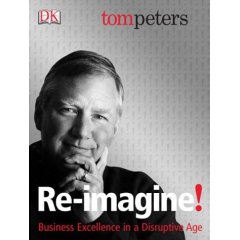 Here's an UNREASONABLE idea...Paul Lemberg explains how you can grow much faster.
Here's an UNREASONABLE idea...Paul Lemberg explains how you can grow much faster.http://unreasonablepromo.com/
In his new book.. "Be Unreasonable" Paul will show why you may not want to do what is reasonable.
Paul uses these strategies to help business get amazing growth results.
Now he will show you how unreasonable strategies can bring you unprecedented success. Real-life case studies of successful and unreasonable business people:
BE UNCOMPROMISING by sticking to your goals no matter what.
BE DEMANDING by expecting more, not less, from everybody.
BE CRITICAL by changing old systems that just don't work.
BE OUTRAGEOUS by creating your own Business Brain Trust.
BE PREPARED for real success on your terms.
-- Our UNREASONABLE offer --I have joined with dozens of other authors to help Paul tell the world about"Be Unreasonable" by giving this unreasonable offer:
http://unreasonablepromo.com/
There is ZERO COST for this offer and thousands of dollars extra
gifts when you order the book today.
It is unreasonably good.
http://unreasonablepromo.com/
PS. When you begin to think about what can happen when you experience this rapid acceleration, you will want to join us in sharing this with the world. Forward this message to anyone that wants to get more out of business and life.
http://UnreasonablePromo.com

 The market for speech technology topped the $1 billion mark in 2006, up 100% from 2 years ago. As adoption of speech systems increases in all parts of our lives, from our computers to our cars to customer relationships, it is clear that speech technology is at the tipping point. Hear from Malcolm Gladwell, who coined this phrase, about how he sees ideas, behaviors, and patterns moving through a population in much the same way as an epidemic. He posits that ideas can become contagious and reach a tipping point, just as a virus reaches critical mass. Learn what it takes to start a social epidemic and create change and how to push speech technology, and your businesses, toward the tipping point.
The market for speech technology topped the $1 billion mark in 2006, up 100% from 2 years ago. As adoption of speech systems increases in all parts of our lives, from our computers to our cars to customer relationships, it is clear that speech technology is at the tipping point. Hear from Malcolm Gladwell, who coined this phrase, about how he sees ideas, behaviors, and patterns moving through a population in much the same way as an epidemic. He posits that ideas can become contagious and reach a tipping point, just as a virus reaches critical mass. Learn what it takes to start a social epidemic and create change and how to push speech technology, and your businesses, toward the tipping point.

